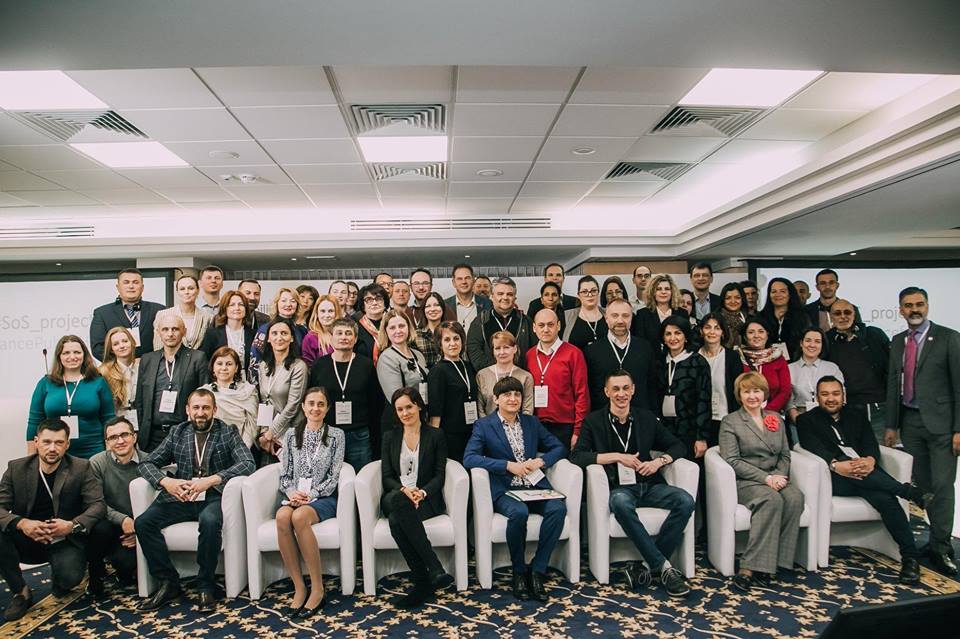EKHN: Training & Advocacy Efforts Result in National Gender Equality Curriculum in Schools in the Republic of Georgia
“A champion in developing responses to address persistent gender inequalities and human rights violations that put adolescent and youth girls and women at a greater risk of, and more vulnerable to HIV.”
Eurasian Key Population Health Network (EKHN) is a membership based regional network aimed at universal access to HIV prevention, treatment, care and support for the most at risk and inadequately served populations in Eastern European and Central Asian, with a keen focus on women and girls.
GBV in the Republic of Georgia
- 27% of women report having experienced at least one type of emotional, sexual or physical abuse
- 16.3% of women report being a survivor of at least one type of sexual abuse
- 8% of women reported experiencing physical violence
- Over 70% of women surveyed report feel that existing laws do not offer sufficient protection
- Women report that society and their own families believe GBV should remain a private matter
- Although women and men do not condone violence, violence inside the family is not often talked about and is sometimes seen as a fact of life
- Rural, older men hold the most patriarchal gender views, while younger Georgians, especially women, have the most egalitarian views regarding gender(World Bank Group 2017)
EKHN began in 2009 with nine members through the support of the Robert Carr Fund. It has grown in size and organizational capacity, and now has 25 active members, the majority of which are National Networks with broad coverage at the country level via regional and local networks.
Throughout the 2016-2019 funding cycle, core funding by the Robert Carr Fund enabled the EKHN Secretariat to provide organizational and technical support to the Georgia Harm Reduction Network (GHRN) in the Republic of Georgia, which compromises 23 national networks and Tanadgoma NGO. Special attention was to Georgia, given its cultural context: Georgia ranks 81 out of 147 countries in the World Gender Inequality Index, and 86 out of 136 countries in Global Gender Gap Index. Georgian culture continues to be patriarchal, as is reflected in cultural norms, and in the lack of political participation of women. This can lead to increased rate of GBV, as deeply rooted cultural norms feed women and girls’ reactions to GBV, legal processes are not conducive to recourse for survivors, and women and girls affected by HIV, drug use or engaged in sex work are highly unlikely to report violence for fear of further discrimination.

© EKHN
In November 2017 EKHN hosted the international “Eurasian Gender Academy – Women, Girls, Transgender Empowerment and Advocacy on Gender and HIV/AIDS” in Tbilisi, Georgia, which included leaders from GHRN and Tanadgoma. Representatives wer trained in holistic knowledge and skills on integrating gender analysis into assessment, program design, implementation and monitoring of organizational and national response. They also learned about implementing gender-responsive activities at organizational and national levels with a view to demonstrating practical application and results. Additionally, in 2018 GHRN and Tanadgoma organized a national workshop with 15 participants aimed at building skills around advocacy and empowerment in order to strengthen HIV related services for girls from key populations and their involvement on preventing GBV. Furthermore, in 2018 EKHN provided GHRN a mini-grant for $4000 USD to develop and implement local activities, which included a cross-sectorial Gender Working Group.
This Working Group consisted of Civil Society Organizations, donors, UN agencies, and governmental officials, and met regularly to develop advocacy materials, conduct trainings, and draft policies on gender issues. Through this Working Group, GHRN developed a strategy to influence long-term, systemic change around GBV, based on the International 2030 Agenda for Sustainable Development: Goal #4 Quality Education. The Working Group decided to combine efforts to influence the Ministry of Education to institutionalize Gender Equality education in the school system.
EKHN Georgian members began meetings with the Ministry of Education in 2016, raising awareness of the importance of gender awareness in public schools, and offering technical support to the Ministry. These meetings led to the decision that a standardized national curriculum should be in place for children In 2017-2018 EKHN Georgian membership became an official partner of the Ministry, drafting a gender education curriculum and handbooks for schools. The Gender Working Group continued to function, assisting in analyzing the Georgian education system, and coaching around the best way to design materials so they would be accepted within the Ministry.
It was because of the negotiation and dialectical skills EKHN members honed in the Eurasian Gender Academy and national training, combined with the programmatic support to convene the Gender Working Group, that the Gender Equality curriculum became a mandatory subject for youth throughout the Republic of Georgia. EKHN members used their knowledge around advocacy to tailor messages so that they would be received by the national government. The impact of this curriculum is its content and legacy. As to its legacy, according to the National Statistics Office of Georgia, as of January 2018, children 0-14 years of age make up 20% of the population of Georgia. Therefore, over the next twelve years, nearly 20% of the national population will receive this curriculum, which could lead to a significant leap in changing knowledge, attitudes and practices of the next generation.
Without the support of the Robert Carr Fund, EHKN would not have had the organizational capacity at the Secretariat level to provide advocacy training to its Georgian membership, nor would they have been able to provide programmatic funds or technical support. Robert Carr Fund’s investment in EKHN has resulted in a resounding and lasting impact in the lives of young Georgians, as they learn about gender equality, and how that affects the spread of HIV and the propagation of GBV.